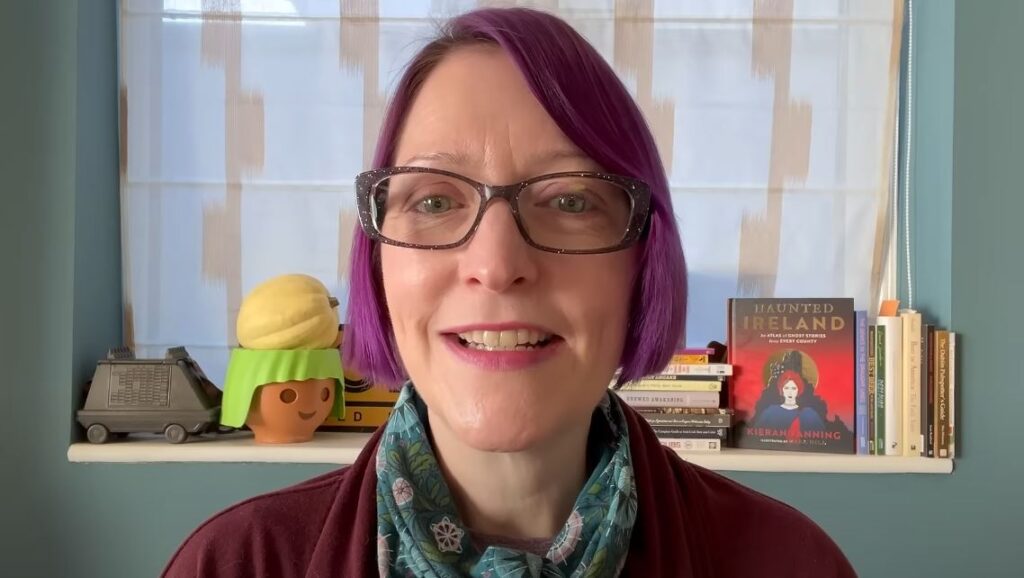
Lisa Grimm is the kind of professional whose career has been molded by curiosity, flexibility, and a remarkable capacity to weave together seemingly disparate fields into a cohesive story of advancement. Before becoming a “action archivist,” who moves fluidly between dusty manuscripts, digital repositories, and corporate innovation labs, she worked as an archaeologist, looking for remnants of past lives buried beneath soil and stone. With a narrative that is both inspirational and useful, this arc has done a remarkable job of reinventing what it means to manage and protect knowledge in the modern world.
She has built a very flexible profession by fusing her archeology study with contemporary knowledge of digital asset management. Her function sometimes mimics that of an interpreter—bringing the invisible into view, whether in the content systems of a pharmaceutical corporation or a Roman ruin. Grimm converts the intricacies of archives and digital ecosystems into easily understandable frameworks that companies can depend on, much like Neil MacGregor does when understanding world culture through museum curation. Years of switching between consultancies, organizations, and libraries have significantly enhanced this flexibility, providing her with incredibly contextualized and lucid ideas.
Bio Data and Career of Lisa Grimm
| Category | Details |
|---|---|
| Name | Lisa Grimm |
| Known As | The “Action Archivist” |
| Occupation | Digital Asset Management Leader, Archivist, Content Strategist, Podcaster |
| Current Location | Dublin, Ireland |
| Past Careers | Archaeologist, Rare Book Librarian, Archivist |
| Key Roles | Astellas Pharma, Novartis, Amazon Web Services, Digizuite, Nature Publishing Group, Drexel University College of Medicine |
| Academic Involvement | Faculty in DAM Certificate Program, Rutgers University |
| Media Work | Co-host of Beer Ladies Podcast, Contributor at Serious Eats |
| Education | BA Archaeology (Boston University), MA Archaeology (University College London), MS-LIS (Long Island University) |
| Distinct Interests | Beer history, certified beer judge, pub culture writing (Weirdo Dublin Pubs) |
Additionally, she has challenged the conventional view of archivists as passive stewards in a particularly inventive way. Rather, with the vigor of a strategist, Grimm demonstrates how digital asset management programs and archives may drastically cut down on organizational inefficiencies. She makes sure that data flows as live, actionable knowledge rather than as static storage by utilizing taxonomy, metadata, and organized governance. Her focus on action distinguishes her as the action archivist who elevates archives from the periphery to the strategic foreground.
When physical archives were rendered inaccessible during the pandemic, Grimm’s support for robust digital infrastructures proved to be extremely effective in maintaining organizational memory. Her thought leadership during this time was very evident, reminding organizations and cultural institutions that trust erodes, possibilities disappear, and decision-making slows down in the absence of trustworthy metadata and easily accessible archives. She contributed to proving that digital archives are strategic assets rather than cost centers by working with academic colleagues and business executives. These assets are unexpectedly inexpensive when contrasted to the losses brought on by inadequate information management.
But Grimm’s influence goes beyond archives and boardrooms. In addition, she co-hosts the Beer Ladies Podcast, tells stories, and studies beer. Her voice here assumes a cultural aspect, fusing stories about social history, pub culture, and brewing customs. In one essay, she made the funny and very cultural claim that Irish bars need to serve soft pretzels in addition to beer. It involved more than just snacking; it involved reimagining customs in ways that are especially advantageous to local groups. Her writing and Anthony Bourdain’s style are remarkably similar in this regard: food and drink serve as springboards for more in-depth discussions about society, identity, and belonging.
Her ability to strike a balance between tradition and innovation is also reminiscent of cultural leaders like Mary Beard, whose research links ancient history to contemporary discussions. By weaving archaeology and librarianship into contemporary technology, Lisa Grimm accomplishes something strikingly similar, demonstrating how historical lessons can inform the design of digital futures. Because it is grounded in continuity, her perspective is incredibly resilient—even when she builds the most cutting-edge digital systems, she never loses sight of her historical roots.
Her work has a wide-ranging effect on society. Her insistence on transparent archives and organized metadata has been much more effective in fostering confidence than reactive fact-checking in the face of mounting concerns about misinformation. She has hinted that archives may serve as a safeguard against manipulation by incorporating blockchain technology and additional verification techniques into discussions about metadata. This is especially helpful in fields where precision might mean the difference between life and death, such as publishing and healthcare.
Her lighthearted investigations into Dublin’s pub culture and beer history, however, keep her grounded and serve as a reminder to viewers that archives are about more than just institutional control; they are also about the customs and tales that influence day-to-day existence. She is extremely flexible, appealing to both corporate executives and pub fans due to her twin roles as a professional thinker and cultural storyteller. Her podcasts and writing serve as a reminder that knowledge, whether it be brewed or digitized, is meant to be shared, appreciated, and given purpose.
As artificial intelligence continues to revolutionize knowledge management in the years to come, her support for robust metadata will prove to be extremely successful. Structured information is essential to AI systems because without it, algorithms can be easily misguided. Grimm’s warning that archivists and taxonomists are just as important to the development of AI as developers is remarkably evident. As a result, her work as an action archivist is not merely descriptive; it is also prophetic, emphasizing how information professionals will play a crucial role in steering the next wave of digital change.
An encouraging example of how conventional disciplines can change without losing their core is provided by Lisa Grimm’s career. She is evidence that archivists can be both innovators and stewards, strategists and storytellers. Through her constant bridging of technology, culture, librarianship, and archeology, she shows that knowledge is lived, shared, and used. Her ideology, which encourages others to view archives as catalysts for creativity, connection, and change rather than as static shelves, is what makes her a “action archivist.”
